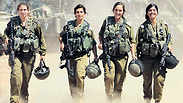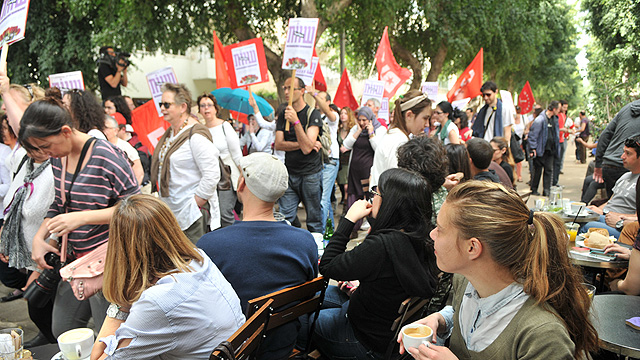
Israeli women still face a glass ceiling in many fields, according to a report Israel submitted on Wednesday to the United Nations. The report included data on women in politics, economy, and society, and was presented at an event organized by Israel's UN mission as part of the UN Commission on the Status of Women underway in New York.
Between 2010-2014, the Knesset passed roughly 50 initiatives meant to promote gender equality and empower women, according to the report – but the average gap in monthly wages for men and women stood at 33.9 percent in March 2014. The report also found that women attain senior positions in the job market through promotions, while men are hired into such positions.
In the fields of science and technology, 30 percent of the workforce is female, according to the report. Fifty percent of Israeli judges are women; 25 percent of Supreme Court judges are women. In local government, only 2.7 percent of mayors are women.
However, the report cited some encouraging trends. In the government and Knesset, as well as the media, the debate over gender equality has been gaining traction, the report said. The number of women in key positions in politics, society, and the economy has risen. More women serve in the Knesset than ever – but the number of female ministers is still inadequate.
Related stories:
- New figures show dire gender pay gap
- More women in politics, but less women-centric policies
- Female professors encourage young women to study science and tech
Opportunities for women in the IDF have increased. Women can serve in 88 percent of army positions, compared to 73 percent a decade ago. Twelve combat positions are open to women.
According to a survey by the advisor to the chief of staff on women's issues, 45 percent of IDF units reported incidents of gender discrimination. Thirty-five percent of women reported that they were discriminated against because of their gender during their time in the army, while 64 percent said they received opportunities equal to men. Twenty-one percent of female IDF officers hold the rank of lieutenant, while 25 percent are captains, 23 percent are majors, 12 percent are lieutenant colonels, and four percent are major generals and higher.
The field of academia also showed promising signs in the report. The majority of students in Israel's higher education institutions are women. They comprise 51.7 percent of all students – 56.5 of undergraduate students, 59.9 of graduate students, and 52.1 of doctoral students. Women constitute 83.2 percent of students in pre-med programs and 87.7 of students training in education and teaching. But 38.1 percent of physics students are women, and 28.8 percent of those studying mathematics, statistics, and computer science are women.
The report praised progress in dealing with violence against women and sexual harassment. The most dramatic incident related to these problems in recent years, said the report, was the conviction and imprisonment of former president Moshe Katsav for rape and sexual harassment.
Ron Prosor, Israel's ambassador to the UN, said that "a society that advances women is a stronger and healthier society. I am proud to represent a country that has, since its founding, had women holding key positions, and whose mission to the UN has a female majority. I am happy about every opportunity Israel has to contribute to the empowerment of women in other places in the world as well."
















